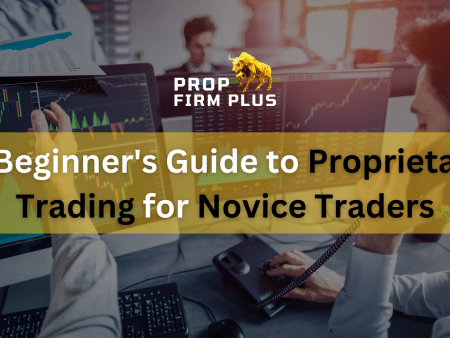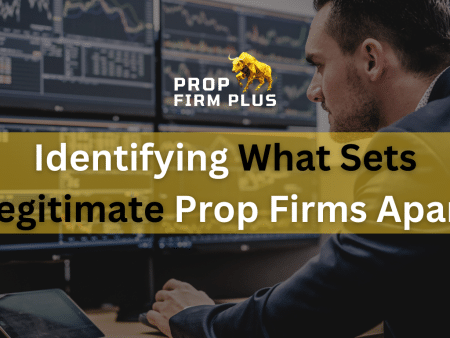
Aspiring traders can acquire funding and participate in the financial markets with funded trading accounts without having to risk their own money upfront. This is a basic tutorial on funded trading accounts, explaining how they operate and what you should know before you start.
Where to Look for Funded Trading
Funded trading accounts, often known as prop trading or prop firm accounts, are provided by proprietary trading firms. These businesses provide traders with access to capital so they can trade a variety of financial instruments, such as stocks, currencies, futures trading, and options trading. If you’re curious about how funded trading accounts operate, it’s crucial to understand that traders are typically evaluated based on their capacity for risk management, trading results, and observance of specific trading strategies.
If they meet the conditions outlined by the business, they may be given a funded account, which would allow them to trade using the funds of the firm and divide any earnings. With this arrangement, traders don’t have to make a significant personal investment in order to enhance trading activity and perhaps generate significant gains. To keep access to the funded account and go on trading with the firm’s capital, traders must, however, abide by the firm’s policies and procedures and fulfill performance goals.
The Process of Funding and Assessment
To be qualified for a funded trading account, traders typically need to pass a stringent screening process that thoroughly assesses their risk management and trading abilities. Numerous subjects are covered in this examination, including evaluations of trading strategies, performance metrics, and adherence to pre-established risk criteria.
Depending on predetermined criteria given by the trading company, traders may be qualified for funding after passing this examination. Thanks to this investment, traders have access to the firm’s capital and can engage in trading operations and the financial markets with more purchasing power. Through this systematic examination and funding process, traders can prove their abilities and obtain vital resources to assist their trading endeavors.
The Profit-Sharing System
The profit-sharing approach works in funded trading accounts as a win-win alliance between traders and the internal trading organization. This strategy sometimes considers many intricacies beyond a simple profit split in order to maximize benefits for all parties involved. The prospect of preserving a portion of their profitable trades encourages traders to closely monitor market movements, refine their trading strategies, and carry out transactions with precision.
In return, the firm provides traders with a Future trading platform and practical tools such as technical support, mentorship, and training materials to enhance their skills and performance. In addition, the profit-sharing model fosters a collaborative atmosphere where traders share strategies, know-how, and best practices, fostering a community that supports growth and learning. The collective component enhances trader performance and raises the overall success of the trading organization.
Risk Assessment
Funded trading accounts are subject to stringent risk management policies and procedures designed to preserve the company’s cash and minimize potential losses. To ensure moral trading practices and maintain account stability, traders must closely adhere to these rules. Typical components of these risk control protocols include maximum drawdown thresholds, restrictions on position size, and adherence to established trading methods.
Trading rules and risk limits violations may lead to discipline-related actions, such as account suspension or termination. By enforcing strict risk management protocols, trading organizations aim to cultivate a culture of responsible risk-taking and discipline among traders. The integrity of the trading environment is maintained with the help of this measure.
Advantages of a Funded Trading Account
Funded trading accounts offer a range of advantages to traders, such as access to professional-grade trading platforms, money, and the potential for significant profit margins. Nonetheless, prospective traders should use caution when utilizing these techniques. It is imperative to review the terms and conditions of the program. In particular, pay special attention to the risk management protocols and profit-sharing arrangements. This evaluation ensures that the program meets the traders’ objectives and risk tolerance.
Despite the attractive possibilities, traders must do extensive due diligence to completely comprehend the ramifications of using a funded trading account. Traders can maximize their profits and make informed decisions while lowering any potential risks associated with their endeavors by adopting a proactive approach.
The Bottom Line
Aspiring traders can access capital and trade on the financial markets under the supervision of proprietary trading firms with funded trading accounts. Understanding the evaluation process, profit-sharing model, risk management policies, and issues is necessary for successful financed trading.










